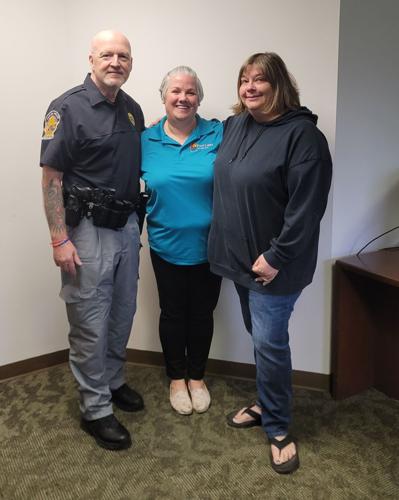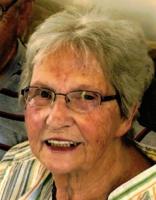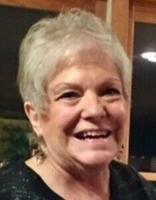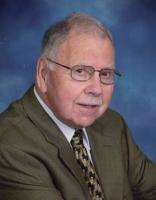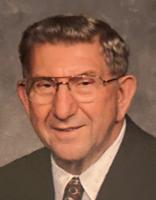GOSHEN — Local experts on the homeless said many people have good intentions in helping the homeless, but what started as good could result in harm. This is especially seen in the homeless communities in Elkhart County.
Officer James “Jim” Ballard is the Behavioral Health Response coordinator of the city of Goshen and Goshen Police Department. A personal experience impacted his view.
“I held a similar position with another law enforcement agency prior to coming to Goshen,” he said. “A Gold Star family of a soldier killed in action during the war wished to donate gift bags to people experiencing homelessness in honor of their son’s sacrifice. The bags contained hygiene items, socks, food items, and approximately $1.50 in quarters (for laundry). I handed the bags out and everyone was appreciative. I did not offer information regarding social service or shelter opportunities. When I returned later in the day, they had pulled their newly gained funds together and purchased alcoholic beverages. They were all highly intoxicated and dancing in a very public setting.”
Ballard said the situation changed his mindset on how to help.
“This upset me but taught me a valuable lesson regarding the difference between a handout and a hand-up,” he said. “Compassionate people have boundaries. Compassionate outreach does not allow someone to suffer and continue spiraling downward by keeping them trapped through enabling handouts which do not require action by those in need. If all your needs are provided by others, what motivation does one have to move forward? A hand-up is a show of compassion through words and actions. A hand-up requires a person to take my hand so I can walk along with them during their journey and show them the way. If they refuse help, I will not allow them to continue suffering and will take action to help. I know for a fact compassionate people dislike fake vulnerability.”
Ballard said situations such as these need to be taken seriously because of the lasting impact they can have on the community.
“This topic needs to be taken seriously because people’s lives are at stake including the consumer, their families, and the public,” he said. “Unfortunately, people die either due to their own poor decisions or a portion of society’s unwillingness to approach matters with the attention they deserve. We need to arrive at a place where homelessness is unacceptable.”
He explained the difference between a handout and a hand-up and what the impact can be.
“Advocates who believe giving a handout and not a hand up without educating as well as encouraging people experiencing homelessness, substance misuse, and mental illness about social service/shelter opportunities are enabling such behaviors. Handouts may make you feel good, but they don’t end the person’s situation and are often counterproductive to growth allowing someone to remain stagnant or spiral farther downward,” he said.
Ballard expressed the deep seriousness of the situation that the country and our local community are experiencing with the level of individuals currently experiencing homelessness.
“Homelessness across our nation is at a crisis level, and as I said earlier, people are suffering and dying,” Ballard said. “As a result, cities are deteriorating as urban blight moves in which causes businesses and society at large to seek out cities where the issues are better managed. I recommend giving directly to social service and shelter providers who offer a compassionate hand up. They are familiar with those in need and understand the complexities surrounding their needs without enabling them.”
Mindy Morehead is the executive director of First Light Mission and has been for seven years now.
“I have two scenarios coming to mind,” she said. “One was a young gentleman who was living under the overpass. He refused services because he didn’t need agencies to help him with all the community help, he was receiving. He was given so much stuff that when he was no longer there, I had to clean up the site and it was two tents full of brand-new items that had been urinated on and discarded like trash. The second one is where a mom stands in the parking lot with her children in all weather to get donations. She receives so much that she refused to get help. I set out with her one day trying to get her to come into the shelter because it was 90 degrees, her kids were miserable, and she said that she was making too much with handouts to come to any shelter. She refused and continued to keep her kids in that situation.”
She reiterated what Ballard previously stated about the difference between a handout and a hand-up.
“Giving people handouts and not a hand-up keeps them where they are,” she said. “It doesn’t make them want to make the effort. The risk is it becomes a dangerous issue. Individuals can be approached when just going to the post office or grocery store, and those getting handouts can start to expect them or demand them. Plus, they don’t care so they throw their stuff down and trash the areas they are in.”
She said this epidemic is an issue that impacts the entire community and the best way, in her opinion, to help is through local agencies.
“It is a community problem,” she said. “It affects us all. Giving to agencies. There are many local, great agencies.”
Morehead said that the reason she is so passionate about this topic and her job is because of the many times she has seen the community and local agencies come together to help an individual in need.
“When you see people put the work in and see their worth again, that turnaround they make is amazing,” Morehead said.
Angie Wogoman, programming director at Faith Mission for the past two and a half months and was previously the Director of Homeless Services at Guidance Ministries for five years, shared her experience of when helping can hurt.
“Prior to ‘Tent City’ being dismantled, often groups would venture back there to deliver food, beverages, and clothing to the individuals living outdoors,” Wogoman said. “While it was a very nice gesture, it helped to keep those living there stuck in homelessness and possibly addiction. When those who are unhoused do not need to leave the area they are living in to receive basic needs services, it robs the agencies who are able to assist them in moving forward the opportunity to work with them. I have heard on more than one occasion ‘Why would I want to get a job? I have everything I need delivered to me.’ While ‘Tent City’ no longer officially exists, there are several smaller areas where the homeless congregate and live, and the struggle still exists regarding good-hearted people giving directly to our unhoused population.”
She said those who are interested in helping the homeless locally can do so without hindering people.
“One of the best ways to help the homeless is to donate to existing agencies,” she said. “These agencies will meet with someone who is unhoused and help assess what their needs are. It could be applying for benefits, applying for subsidized housing, connecting them to mental health services and or addiction services, as well as providing for their basic needs.
“Another great alternative is to volunteer at one of the existing agencies that work with those who are unhoused. Most agencies have a variety of volunteer needs that will fit every personality and schedule,” she said.
Wogoman stressed the importance of respecting one another and treating each other with basic kindness.
“Homelessness needs to be taken seriously because we are all human beings and deserve the most basic human rights,” she said. “This includes being treated with dignity and respect. Being offered a hand up and not a handout.”
She shared the statistics of Faith Mission’s numbers on the homeless population that they are currently serving.
“We currently have 82 people in our program portion of the shelter and 71 in our Emergency Overnight Shelter,” Wogoman said. “There are many more who do not access shelter options and are living outside. If we do not address homelessness and the root issues causing it, we will continue to see those numbers rise.”
Wogoman said there are several ways the community could help the homeless and make an impact.
“Giving of your time, talents, and treasures at the agency level will assist in so many ways,” she said. “If those who are unhoused are no longer able to have their basic needs met while on the street, they will begin to seek services. This can lead to them beginning the journey to rebuilding the life they once had.”

